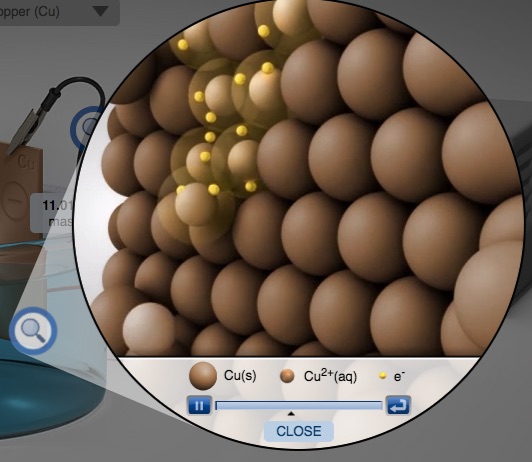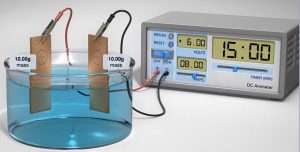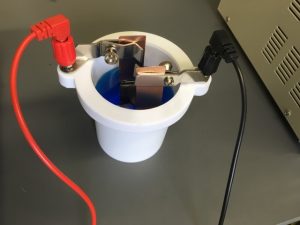 AP Chemistry Course Description
AP Chemistry Course Description
The summer institute will discuss topics important for the current AP chemistry experience, provide insight into changes in the new AP Chemistry curriculum and discuss and demonstrate how inquiry can be used in the AP Chemistry classroom. Experienced AP Chemistry teachers may know how much of the content must be taught versus how much content can actually be taught. However, teachers may not be familiar with the depth and breadth of the AP Chemistry content in the curriculum and on the examination. Additionally, teachers may want suggestions and guidance on how to move your students who earned a 1 or a 2 on the AP Chemistry Exam towards a 3, how to move your 3’s to 4’s and 4’s to 5’s. We will provide sample activities that possibly provide a different approach to introducing topics in the classroom. New teachers will have plenty of opportunities to experience how one can leverage both classroom and laboratory activities to help students attain a college level understanding of chemistry.
All of the resources that you will use, and many others, will be available at no additional cost through Greenbowe’s AP Chemistry Goggle Drive or through the University of Oregon “chemdemos” web site. AP Chem teachers who become a FOTs will have access to the CIDER web site.
Topics to be covered in this workshop will focus on content, based on experience as a Reader, Table Leader, and Question Leader during the APChem Test Readings, that most students have difficulty understanding.
These topics include:
- Periodicity and Atomic Structure (Photoelectron Spectroscopy, Mass Spectrometry)
- Bonding and Molecular Structure
- Reactions
- Intermolecular Attractive Forces
- Thermodynamics
- Aqueous Equilibrium
- Chemical Kinetics
- Electrochemistry
 Teachers will experience learning chemistry via guided-inquiry activities for both classroom and laboratory components of the course. During the hands-on portion of the workshop, teachers will have access to graphing calculators and probe-ware for data collections and analysis. Teachers will use these activities to help acquire a more fundamental understanding of the topics listed above and then build modules incorporating inquiry into their classroom.
Teachers will experience learning chemistry via guided-inquiry activities for both classroom and laboratory components of the course. During the hands-on portion of the workshop, teachers will have access to graphing calculators and probe-ware for data collections and analysis. Teachers will use these activities to help acquire a more fundamental understanding of the topics listed above and then build modules incorporating inquiry into their classroom.
 Please see this link to a computer simulation on electrochemistry (by Gelder and Greenbowe with Pearson Publishing) as one of the unique tools we have developed to help teach chemistry.
Please see this link to a computer simulation on electrochemistry (by Gelder and Greenbowe with Pearson Publishing) as one of the unique tools we have developed to help teach chemistry.
Chemistry experiments will be selected from the recommended experiments listed in in the CED, and many will utilize an inquiry format. Laboratory experiments/activities will include the following topics: equilibrium, thermodynamics, kinetics and electrochemistry.
Prior to the APSI participating teachers will be asked to access a web site, to provide input into the content that should be discussed, and to complete a number of online activities. These explorations will provide important prior knowledge to help determine the content to be covered in the APSI. The address of the web site will be e-mailed to the participants at least two weeks before the APSI. (Please be sure the e-mail that you provide is one you will check throughout the summer.) Participants will have access to an APSI web site that includes homework assignments (with answers), sample examinations (with answers) and additional activities that can be incorporated into the classroom.
What to Bring?: Goggles, clothing and footwear appropriate for working in the laboratory, graphing calculator, portable computer (if you have one, or you have access to a school computer), your AP Chemistry course syllabus, favorite activities that you use in your classroom that you would like to share, favorite website addresses, U-tube video links, computer simulations, computer animations, or other resources that you find useful in your classroom.


